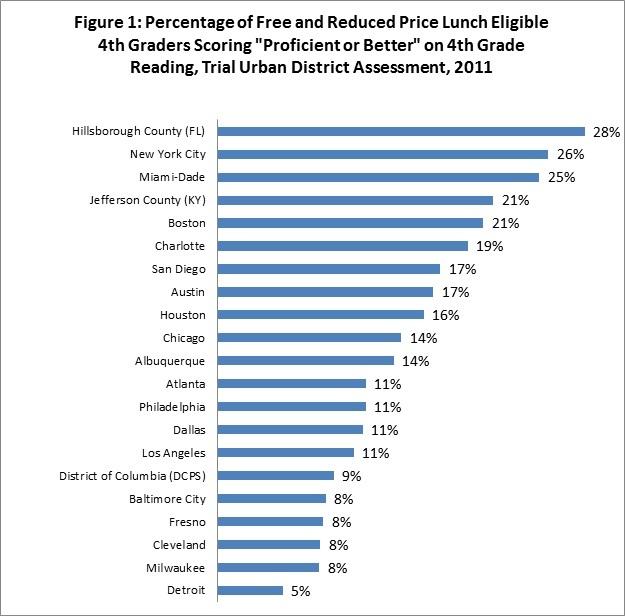Significant Advances in Reading and Math Achievement in NYC Public Schools for 2024-25
As the 2024-25 school year unfolds, New York City’s public education system is witnessing a marked enhancement in student academic performance, particularly in reading and mathematics. After enduring the setbacks caused by the COVID-19 pandemic and the shift to remote learning, educators and administrators are cautiously encouraged by the upward trends shown in recent standardized test results. This progress may represent a pivotal moment in the district’s ongoing mission to bridge educational disparities and boost achievement for its diverse student body.
Marked Improvements in Literacy and Numeracy Across Grade Levels
According to the latest figures from the NYC Department of Education, reading proficiency has climbed by 4.7%, while math proficiency has increased by 5.3% compared to the previous academic year. These positive shifts are largely credited to focused strategies such as expanded literacy initiatives and revamped math instruction designed to counteract pandemic-related learning setbacks.
Several critical elements have driven these improvements:
- Expanded Tutoring Services: Collaborations with local nonprofits have increased personalized academic support.
- Enhanced Professional Development: Teachers have engaged in training centered on evidence-based, data-informed teaching techniques.
- Modernized Curriculum Resources: Introduction of culturally relevant reading materials and interactive math platforms.
| Grade | Reading Proficiency (%) | Math Proficiency (%) |
|---|---|---|
| 3rd Grade | 62 | 58 |
| 6th Grade | 68 | 65 |
| 9th Grade | 71 | 69 |
Analyzing the Growth Trends from the Previous Academic Year
Data from the 2023-24 school year also indicated promising upward movement, with reading scores rising by 4.3 percentage points and math scores improving by 3.8 points. These gains were largely driven by district-wide initiatives such as increased tutoring availability, the integration of advanced digital learning tools, and targeted intervention programs. Elementary schools, in particular, showed the most significant progress, attributed to early literacy campaigns launched in late 2023.
Progress was observed across various student demographics, suggesting strides toward narrowing achievement gaps. Contributing factors included:
- Focused Teacher Training: Emphasizing instructional methods informed by student performance data.
- Extended Learning Opportunities: After-school and weekend programs providing additional academic support.
- Family Engagement Efforts: Initiatives designed to boost parental involvement in student learning.
| School Level | Reading Score Growth | Math Score Growth |
|---|---|---|
| Elementary | +5.1% | +4.6% |
| Middle | +3.9% | +3.2% |
| High School | +2.8% | +2.5% |
Ongoing Obstacles Despite Academic Progress
While the upward trajectory in reading and math scores is encouraging, several persistent challenges continue to affect equitable student success across New York City’s public schools. Disparities remain evident among boroughs and socioeconomic groups, with some neighborhoods lagging behind despite overall improvements. Additionally, students with disabilities and English Language Learners (ELLs) face ongoing difficulties that standardized test scores alone do not fully reveal.
Other significant barriers impacting student outcomes include:
- Insufficient access to current educational materials and technology in underfunded schools
- Chronic teacher shortages and high turnover rates disrupting instructional continuity
- Lingering effects of pandemic-related learning loss in vulnerable communities
- Rising mental health challenges affecting student motivation and attendance
| Issue | Consequences |
|---|---|
| Teacher Shortages | Increased class sizes and reduced individualized attention |
| Technology Inequities | Limited student access to essential digital learning tools |
| Mental Health Concerns | Decreased engagement and higher absenteeism rates |
Approaches to Maintain and Enhance Academic Momentum
To build on these promising results, NYC educators and policymakers are prioritizing personalized learning strategies and targeted support tailored to the unique needs of their student population. Emphasis is placed on early literacy development, ongoing teacher professional growth, and broadening access to technology. Furthermore, community partnerships remain vital, with schools collaborating with local organizations to offer after-school tutoring and family education programs that reinforce learning outside the classroom.
Key initiatives include:
- Instruction Guided by Data: Leveraging assessment results to customize teaching and monitor student progress effectively.
- Expanded Summer Learning Programs: Providing enrichment activities to prevent regression and strengthen academic skills during breaks.
- Equitable Distribution of Resources: Allocating funding and support to schools and communities with the greatest needs.
- Enhanced Social-Emotional Support: Integrating counseling services and wellness programs to foster a nurturing educational environment.
| Initiative | Focus Area | Anticipated Outcome |
|---|---|---|
| Teacher Development | Instructional Excellence | Increased Student Engagement |
| After-School Learning | Extended Academic Support | Better Knowledge Retention |
| Technology Enhancements | Digital Equity | Improved Technical Proficiency |
| Family Engagement Workshops | Parental Involvement | Stronger Home-School Partnerships |
Looking Ahead: Sustaining Progress in NYC Education
The upward trend in reading and math achievement within New York City’s public schools during the 2024-25 academic year offers a hopeful outlook for students, educators, and families. Although challenges remain, the data highlights the effectiveness of focused interventions and the importance of continued investment in equitable education. Moving forward, stakeholders will be closely monitoring these developments to ensure that the district not only maintains but accelerates this positive trajectory in the years to come.













